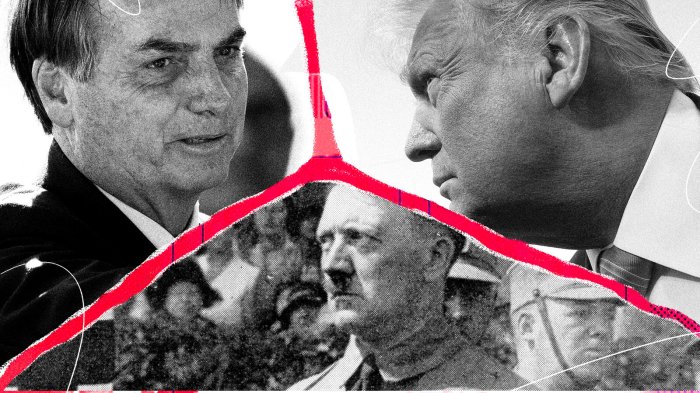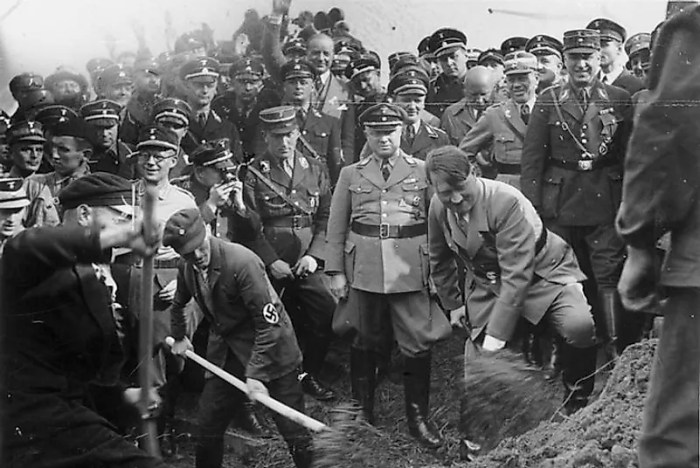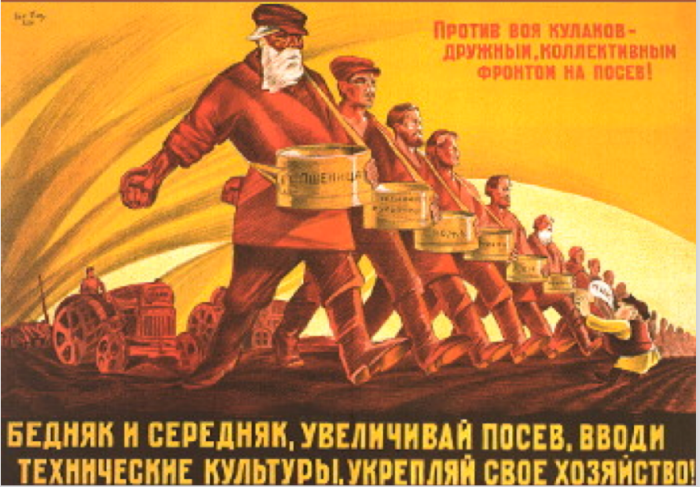Fascist corporatist economy ap world – In the tumultuous landscape of the early 20th century, the fascist corporatist economy emerged as a unique blend of authoritarianism and economic control. This essay delves into the historical context, key features, examples, economic and political implications, and comparisons with other economic systems that define this intriguing and controversial economic model.
Fascist corporatist economies represent a distinctive form of economic organization characterized by the fusion of state authority and private enterprise. Under this system, the state assumes a dominant role in regulating and directing economic activity, fostering close collaboration between corporations and government entities.
Historical Context

The emergence of fascist corporatist economies in the early 20th century was a complex phenomenon influenced by a confluence of economic, political, and social factors.
Economically, the post-World War I period was characterized by widespread economic instability, unemployment, and social unrest. This led to a search for alternative economic models that could provide stability and growth.
Political Factors
Politically, the rise of fascism was fueled by nationalism, anti-communism, and a desire for strong leadership. Fascist regimes sought to create a corporatist state in which the economy was organized into a hierarchical system of corporations representing different sectors of the economy.
This system was designed to eliminate class conflict and promote national unity.
Economic Factors
Economically, corporatism was seen as a way to address the problems of economic instability and unemployment. By organizing the economy into corporations, the government could control prices, wages, and production. This allowed the government to implement economic policies that promoted growth and stability.
Key Features

Fascist corporatist economies are characterized by a close relationship between the state and private corporations. The state plays a central role in regulating and controlling economic activity, while corporations are expected to cooperate with the state and promote the national interest.
The fascist corporatist system is based on the idea that the economy is a single, organic entity that should be organized and directed by the state. The state is seen as the guarantor of the national interest and the protector of the nation’s economic well-being.
Role of the State
The state plays a central role in the fascist corporatist economy. It is responsible for regulating and controlling economic activity, setting prices, and allocating resources. The state also owns and operates a number of key industries, such as transportation, communication, and energy.
The state’s economic policies are designed to promote the national interest and achieve the goals of the fascist regime. These goals typically include economic growth, self-sufficiency, and social stability.
Relationship between Corporations and the Government
Corporations are expected to cooperate with the state and promote the national interest. In return, the state provides corporations with protection and support. Corporations are also given a voice in the government through their representation in the fascist party and other state institutions.
The relationship between corporations and the government is based on mutual cooperation and support. The state provides corporations with the resources and protection they need to succeed, while corporations provide the state with the economic support it needs to achieve its goals.
Examples

Fascist corporatist economies have been implemented in various countries throughout history. These economies have shared certain key characteristics, such as the organization of industries into syndicates or corporations, the suppression of labor unions, and the control of the economy by the state.
One of the most well-known examples of a fascist corporatist economy is Italy under Benito Mussolini. Mussolini’s government established a system of syndicates that organized all industries in the country. These syndicates were controlled by the government and were responsible for setting wages, prices, and production levels.
The government also suppressed labor unions and outlawed strikes.
Case Study: Italy
The fascist corporatist economy in Italy had a number of key characteristics. First, the government organized all industries into syndicates. These syndicates were controlled by the government and were responsible for setting wages, prices, and production levels. Second, the government suppressed labor unions and outlawed strikes.
Third, the government controlled the economy through a system of state-owned enterprises and subsidies.
The fascist corporatist economy in Italy had a number of outcomes. First, it led to a period of economic growth and stability. Second, it helped to suppress dissent and maintain political control. Third, it led to a decline in the standard of living for many Italians.
Economic Implications: Fascist Corporatist Economy Ap World

Fascist corporatist economies have both positive and negative economic consequences. These economies often experience economic growth, low unemployment, and reduced inequality, but they also face challenges related to economic freedom and innovation.
Fascist corporatist economies prioritize economic growth through state-led industrialization and protectionism. This focus on growth can lead to rapid industrial development and job creation. Additionally, the government’s control over the economy allows it to implement policies that reduce unemployment, such as public works programs.
Impact on Economic Growth
- Positive:State-led industrialization and protectionism can promote economic growth and job creation.
- Negative:Government control over the economy can stifle innovation and economic freedom.
Impact on Employment
- Positive:Government policies can reduce unemployment through public works programs and job creation schemes.
- Negative:Labor unions may have limited power, and workers may face restrictions on collective bargaining.
Impact on Inequality
- Positive:Government policies can reduce income inequality through social welfare programs and price controls.
- Negative:Wealth and power may be concentrated in the hands of a few corporations and individuals.
Political Implications

Fascist corporatist economies have significant political implications, enabling the consolidation of power and suppression of dissent.
Corporatist structures create a system of state-controlled organizations representing various economic sectors. These organizations are often dominated by the ruling party or its affiliates, giving the government direct control over key industries and economic activities. This control allows the regime to allocate resources, set prices, and regulate wages, effectively eliminating independent economic decision-making and empowering the state.
Consolidation of Power, Fascist corporatist economy ap world
By controlling the economy, fascist regimes can manipulate economic outcomes to favor their political agenda. They can use corporatist structures to reward loyalists, punish opponents, and ensure the loyalty of key economic sectors. This economic leverage strengthens the regime’s grip on power and discourages opposition.
Suppression of Dissent
Corporatist economies also serve as a means of suppressing dissent. The state’s control over economic organizations allows it to monitor and control the activities of workers, employers, and other economic actors. This surveillance can be used to identify and suppress potential opposition, as dissenters risk losing their jobs or facing other economic consequences.
Relationship with Authoritarian and Totalitarian Regimes
Fascist corporatist economies are closely associated with authoritarian and totalitarian regimes. These regimes typically use corporatism as a tool to consolidate power, suppress dissent, and maintain social order. By eliminating independent economic decision-making and creating a state-controlled economy, these regimes can effectively control all aspects of society, from economic production to political participation.
Comparisons with Other Economic Systems

Fascist corporatist economies differ from other economic systems, such as capitalism and socialism, in their approach to economic principles, political control, and social organization.
Economic Principles
Fascist corporatist economies reject the free market principles of capitalism, which emphasize individual property rights and competition. Instead, they adopt a centralized planning system where the state plays a dominant role in coordinating economic activities.
Fascist corporatist economies also differ from socialism in their rejection of public ownership of the means of production. While both systems emphasize state intervention, fascist corporatist economies maintain private ownership while imposing strict regulations and controls on businesses.
Political Control
Fascist corporatist economies are characterized by a strong centralized government that exercises extensive control over economic and social life. The state regulates prices, wages, and production, and it often intervenes directly in the economy to achieve specific goals.
In contrast, capitalist economies typically have a limited role for government intervention in the economy. Socialist economies, on the other hand, may have a more extensive role for government control, but they do not typically exhibit the same level of centralization and authoritarianism as fascist corporatist economies.
Social Organization
Fascist corporatist economies promote a corporatist social organization, in which individuals are organized into syndicates or corporations based on their economic function. These syndicates represent the interests of their members to the government and help to enforce state policies.
This corporatist structure contrasts with the class-based organization of socialist economies and the individualistic orientation of capitalist economies.
Frequently Asked Questions
What are the key characteristics of fascist corporatist economies?
Fascist corporatist economies are defined by state control over economic activity, suppression of labor unions, and close collaboration between corporations and the government.
What are some examples of countries that have implemented fascist corporatist economies?
Notable examples include Italy under Benito Mussolini, Germany under Adolf Hitler, and Spain under Francisco Franco.
What are the positive and negative economic consequences of fascist corporatist economies?
Positive consequences include rapid industrialization and economic growth, while negative consequences include suppression of individual economic freedoms and inequality.